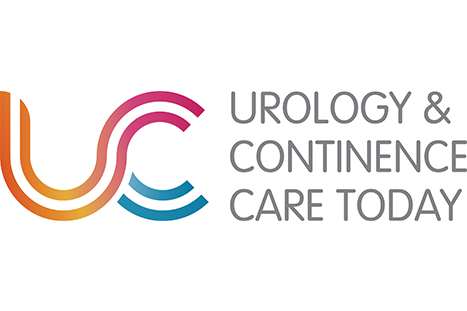References
Association of British HealthTech Industries (2021a) Trends for HealthTech - A Ten Year Perspective. Available online: www.abhi.org.uk/media/3459/trends-for-healthtech-a-ten-year-perspective.pdf
Association of British HealthTech Industries (2021b) Supporting Value-Based Decision Making. Available online: www.abhi.org.uk/media/3180/supporting-value-based-decision-making.pdf
Bladder and Bowel Community (2022) Anal Irrigation. Available online: www.bladderandbowel.org/medicinal-treatment/anal-irrigation/
Bowel Interest Group (2020) Cost of Constipation. 3rd edn. Available online: https://bowelinterestgroup.co.uk/resources/cost-of-constipation-report-2020/
Coggrave M (2012) Guidelines for Management of Neurogenic Bowel Dysfunction in Individuals with Central Neurological Conditions. Initiated by the Multidisciplinary Association of Spinal Cord Injured Professionals. Available online: www.mascip.co.uk/wp-content/uploads/2015/02/CV653N-Neurogenic-Guidelines-Sept-2012.pdf
Coloplast UK and Ireland (2016) The Cost of Constipation Report. Available online: www.coloplast.co.uk/Global/UK/Continence/Cost_of_Constipation_Report_FINAL.pdf
NHS England (2022) What is Personalised Care? Available online: www.england.nhs.uk/personalisedcare/what-is-personalised-care/#:~:text=Personalised%20care%20means%20people%20have,their%20individual%20strengths%20and%20needs
National Institute for Health and Care Excellence (2022a) Benefits of Implementing NICE Guidance. Available online: www.nice.org.uk/About/What-we-do/Into-practice/Benefits-of-implementing-NICE-guidance
National Institute for Health and Care Excellence (2022b) Review of MTG36: Peristeen® transanal irrigation system for managing bowel dysfunction. Available online: www.nice.org.uk/guidance/mtg36/evidence/review-decision-may-2022-pdf-11070400861
Association of British HealthTech Industries (2021b) Supporting Value-Based Decision Making. Available online: www.abhi.org.uk/media/3180/supporting-value-based-decision-making.pdf
Bladder and Bowel Community (2022) Anal Irrigation. Available online: www.bladderandbowel.org/medicinal-treatment/anal-irrigation/
Bowel Interest Group (2020) Cost of Constipation. 3rd edn. Available online: https://bowelinterestgroup.co.uk/resources/cost-of-constipation-report-2020/
Coggrave M (2012) Guidelines for Management of Neurogenic Bowel Dysfunction in Individuals with Central Neurological Conditions. Initiated by the Multidisciplinary Association of Spinal Cord Injured Professionals. Available online: www.mascip.co.uk/wp-content/uploads/2015/02/CV653N-Neurogenic-Guidelines-Sept-2012.pdf
Coloplast UK and Ireland (2016) The Cost of Constipation Report. Available online: www.coloplast.co.uk/Global/UK/Continence/Cost_of_Constipation_Report_FINAL.pdf
NHS England (2022) What is Personalised Care? Available online: www.england.nhs.uk/personalisedcare/what-is-personalised-care/#:~:text=Personalised%20care%20means%20people%20have,their%20individual%20strengths%20and%20needs
National Institute for Health and Care Excellence (2022a) Benefits of Implementing NICE Guidance. Available online: www.nice.org.uk/About/What-we-do/Into-practice/Benefits-of-implementing-NICE-guidance
National Institute for Health and Care Excellence (2022b) Review of MTG36: Peristeen® transanal irrigation system for managing bowel dysfunction. Available online: www.nice.org.uk/guidance/mtg36/evidence/review-decision-may-2022-pdf-11070400861
This piece was first published in the Journal of Community Nursing. To cite this article use: Lodge J, Crossland A (2022) Why evidence is more than just a NICE to have in MedTech. J Community Nurs 36(6): 19–21




 Success!
Success!